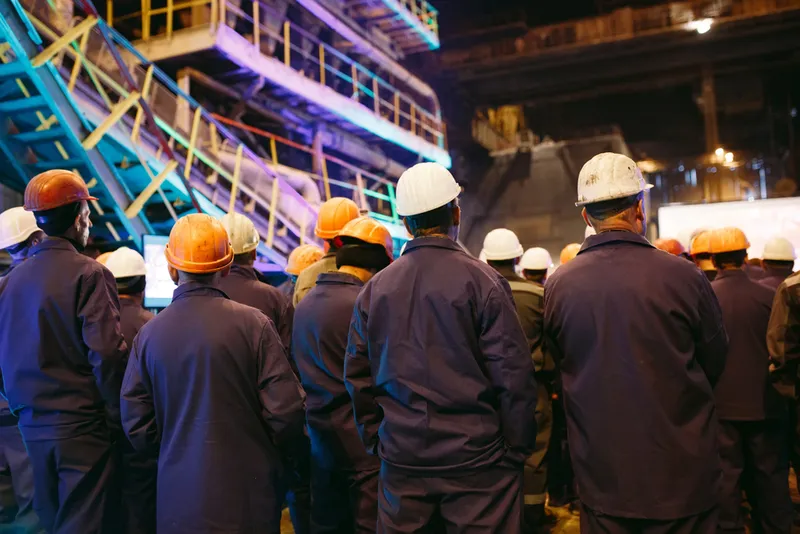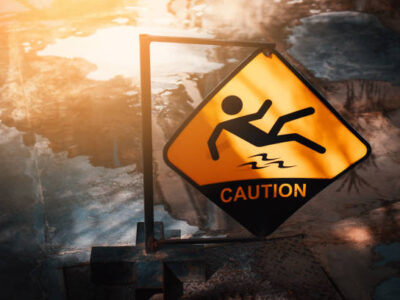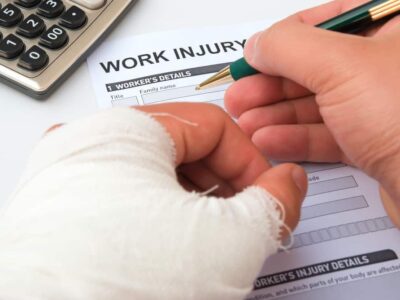Don’t take it lightly. The severity of a traumatic head injury could take days to materialize, and by then, you could suffer serious repercussions. Even a mild concussion could require you to take time off work and limit your activities, at least temporarily.
Concussions and other forms of traumatic brain injuries (TBIs) are among the most serious workplace injuries. According to the Centers for Disease Control and Prevention (CDC), traumatic brain injuries contribute to nearly 30% of all injury-related deaths in the United States, and thousands more workers live with long-term disability after suffering a blow to the head. In industries such as construction, manufacturing, and warehousing, these injuries are particularly common due to falling objects, slips, trips, falls, or vehicle-related accidents on job sites.
In California, workers who experience head injuries at their job site are often entitled to workers’ compensation benefits, but the process can be complex. Understanding your symptoms, your rights, and the claim process is essential for protecting both your health and your financial future.
How do I know if I have a concussion?
If you experience any of the following symptoms, you could have a concussion:
1. Memory and thought
- Can’t concentrate
- Can’t think clearly
- Can’t remember new information
- Feel slow
2. Physical
- Headache
- Dizziness
- Blurry or fuzzy vision
- Nausea or vomiting
- Balance issues
- Sensitive to light or noise
- No energy
- Tired
3. Mood and Emotion
- Irritable
- Sad
- More emotional
- Anxious
- Nervous
4. Sleep
- Sleeping more
- Sleeping less
- Unable to fall asleep
If you experience any of these symptoms or a combination thereof, and they continue to worsen, you should be examined by a doctor. You may not recognize these symptoms immediately. A family member or friend might notice the symptoms before you do.
When to Seek Immediate Medical Attention
You should always seek medical attention after a blow to the head, especially at work, but if you experience the following, go immediately:
- Slurred speech
- Worsening or persistent headache
- Numbness
- Weakness
- Decrease in coordination
- Persistent or recurring nausea
- Persistent or recurring vomiting
These symptoms could allude to a much more serious problem, but the symptoms below usually indicate a potentially life-threatening or dangerous situation:
- Only one pupil dilates
- Unconscious for any length of time
- Extreme drowsiness
- Unable to wake
- Seizures or convulsions
- Confusion
- Agitation
- Restlessness
- Unusual behavior
- Unable to recognize people or places
Doctors often use diagnostic tools such as CT scans, MRIs, or neurological examinations to determine the severity of a concussion or to rule out a more severe traumatic brain injury, such as a brain bleed or skull fracture. Some workers also experience post-concussion syndrome, where symptoms such as dizziness, headaches, and difficulty concentrating can last for weeks or even months.
Steps to Take After a Workplace Concussion
If you hit your head at work in California, taking the right steps is crucial for your recovery and your legal rights:
- Report the injury immediately. California law requires employees to notify employers about work-related injuries as soon as possible. Delays can affect your ability to receive benefits.
- Seek medical treatment. Ask your employer for a list of approved workers’ compensation doctors or occupational health clinics. Diagnostic imaging and specialist referrals may be necessary.
- Document your symptoms. Keeping a daily record of your symptoms helps establish the seriousness of your injury.
- File a workers’ compensation claim. Submit a DWC-1 claim form to your employer. This marks the beginning of the official benefits process.
- Follow up on treatment and legal requirements. If your condition worsens, keep your doctor and your attorney informed.
Employers in California must also comply with OSHA safety regulations, including providing protective equipment such as hard hats on construction sites. If safety violations contributed to your injury, this may impact the handling of your case.
Workers’ Compensation Benefits for Concussions in California
Regardless of how your injury occurred, workers’ compensation benefits can help with your medical expenses and lost wages during your recovery. Depending on the severity of your concussion or traumatic brain injury, you may be entitled to:
- Medical care: doctor visits, hospitalization, medications, rehabilitation, and long-term therapy.
- Temporary disability benefits: partial wage replacement while you recover and cannot work.
- Permanent disability benefits: if your concussion results in lasting impairment.
- Supplemental job displacement benefits: retraining or education vouchers if you cannot return to your prior job.
- Death benefits: for surviving family members in the event of a fatal head injury.
California also imposes strict timelines: generally, you must report the injury within 30 days, and workers’ compensation claims should be filed within one year of the incident. Missing these deadlines could jeopardize your right to benefits. If your claim is denied, you have the right to appeal through the Workers’ Compensation Appeals Board.
Why Legal Representation Matters in Brain Injury Claims
More than likely, taking the time to fill out paperwork and deal with your employer and the insurance company will not help your recovery. Insurance carriers may attempt to downplay your symptoms or claim that they are unrelated to your workplace accident.
You may benefit from consulting with a workers’ compensation attorney in Van Nuys. An experienced lawyer can:
- Explain your rights under the California Labor Code.
- Ensure deadlines and procedural requirements are met.
- Handle disputes with your employer or insurance provider.
- Advocate for maximum benefits, including long-term care if necessary.
- Represent you in appeals if your claim is denied.
At Hussain & Gutierrez, our attorneys focus on helping injured workers with head and brain injuries across Van Nuys and greater Los Angeles County. We understand the lasting consequences of traumatic brain injuries and fight to secure the benefits our clients need to recover.
Preventing Workplace Concussions
While accidents cannot always be prevented, both employers and employees share responsibility for safety. Employers must provide training, personal protective equipment, and controls for hazards as required by OSHA. Workers should use hard hats on construction sites, follow safety protocols when working at heights, and report hazards that increase the risk of falling objects or head trauma.
Prevention may not undo your injury, but showing that proper safety measures were ignored can strengthen your legal claim.
Frequently Asked Questions (FAQs)
What should I do if I hit my head at work in California?
Report the injury immediately, seek medical evaluation, and file a workers’ compensation claim. Documenting your symptoms will help support your case.
Can I get workers’ compensation for a concussion?
Yes. Concussions are covered under California workers’ compensation if they occur during the course of employment. Benefits include medical care and partial wage replacement.
How long can I be off work with a concussion?
Recovery time varies depending on severity. Mild concussions may resolve within days, but post-concussion syndrome can keep workers off the job for weeks or months.
What is the average settlement for a workplace concussion in California?
There is no fixed number. Settlements depend on medical expenses, lost wages, the severity of symptoms, and whether permanent disability is a result. Attorneys can help maximize recovery.
Will workers’ comp cover long-term therapy or rehabilitation?
Yes. If your doctor prescribes ongoing treatment, workers’ compensation should cover therapy, rehabilitation, and medications related to your workplace injury.
Can I sue my employer for a workplace concussion?
In most cases, workers’ compensation is the exclusive remedy in California. However, you may pursue a lawsuit if a third party (such as a contractor, equipment manufacturer, or negligent driver) caused your head injury.
Do I need an attorney for a concussion workers’ comp claim?
An attorney is not legally required, but hiring one often makes the difference between a denied claim and full compensation. Brain injuries are complex, and insurers frequently minimize their impact.
If you suffered a concussion or traumatic brain injury at work, don’t handle the claim process alone. Get the medical care and compensation you deserve. The attorneys at Hussain & Gutierrez in Van Nuys are here to guide you through every step of the workers’ compensation process.
Contact us today for a complimentary consultation to safeguard your health, rights, and future.



